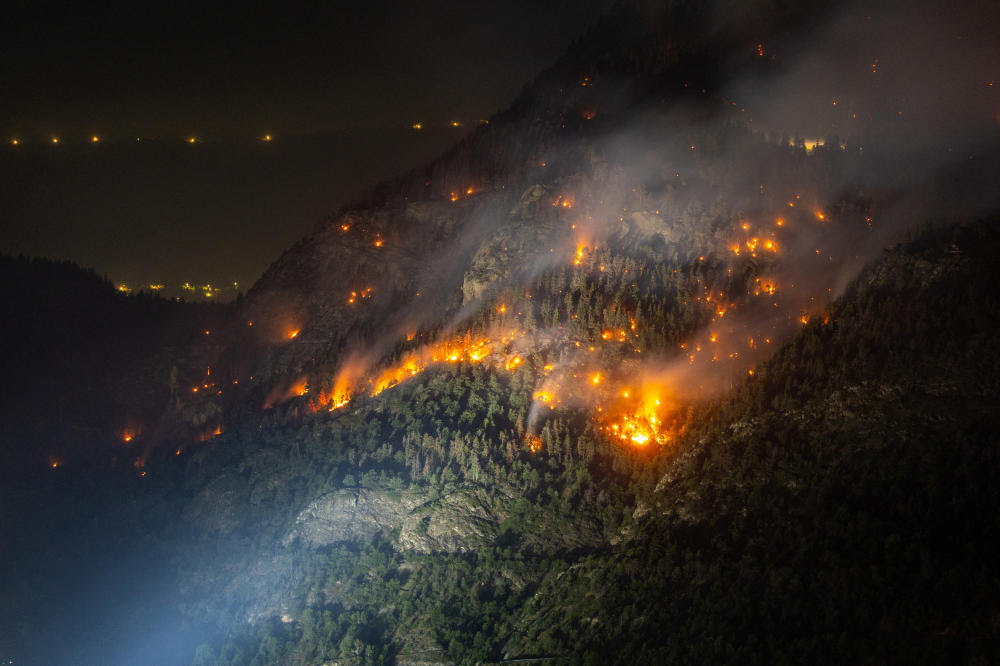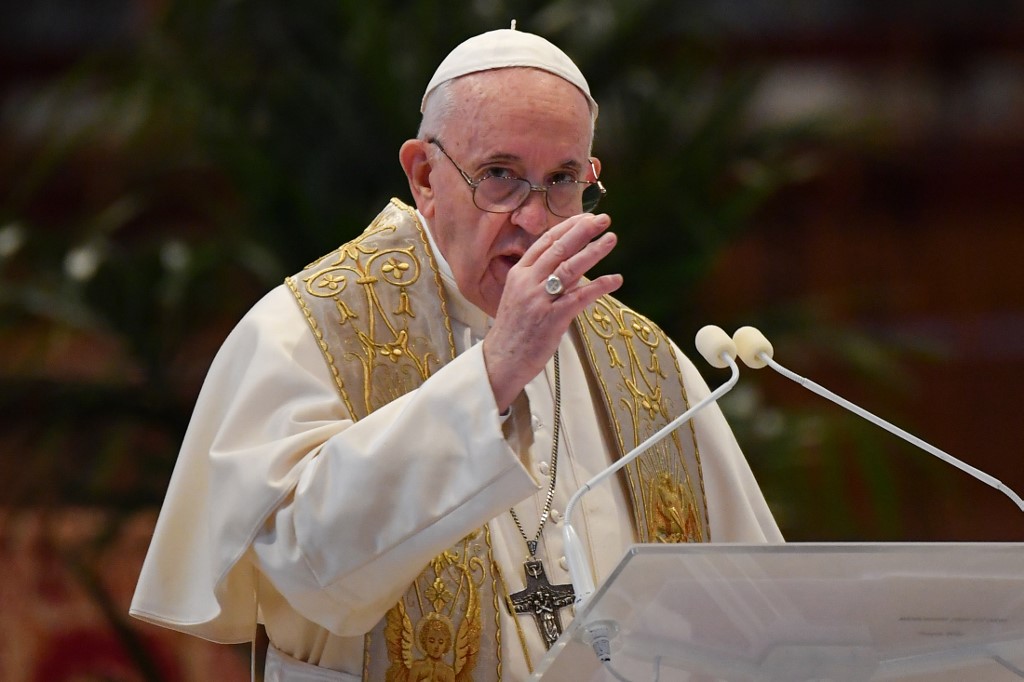International News
Over 40 People Killed By Deadly Mediterranean Wildfires

In the Mediterranean wildfires threatening villages and vacation destinations, more than 40 people have died, the most of them in Algeria, and hundreds have been evacuated.
Since fires are also raging on the islands of Corfu and Evia, Greece is planning for additional evacuation planes from Rhodes.
Temperatures are predicted to reach over 44C (111F) in several parts of Greece as the current prolonged heatwave shows no signs of abating.
Firefighters are having difficulty putting out the flames and building firebreaks in several areas due to high winds and foliage that is tinder dry.
The heaviest death toll so far is in Algeria, where the 34 victims included 10 soldiers surrounded by flames during an evacuation in the coastal province of Bejaia, east of Algiers. Bejaia is the worst-hit area, accounting for 23 of the deaths, local media report.
The Algerian authorities said 80% of the blazes had been put out since Sunday, but a massive firefighting effort continues, involving about 8,000 personnel, hundreds of fire trucks and some aircraft.
Fires have also raged in neighbouring Tunisia, where 300 people had to be evacuated from the coastal village of Melloula.
In Greece, the Civil Protection Ministry warned of an “extreme danger” of fire in six of the country’s 13 regions on Wednesday.
A team of climate scientists – the World Weather Attribution group – said this month’s intense heatwave in Southern Europe, North America and China would have been virtually impossible without human-induced climate change.
On the island of Rhodes more than 20,000 people have been evacuated from homes and resorts in the south in recent days. An airport official told AFP news agency that more than 5,000 had flown home on more than 40 emergency flights between Sunday and Tuesday.
Tourism accounts for one in five jobs in Greece, and the industry is vital for Rhodes and many other islands. The UK Foreign Office has not advised against travel to the affected parts of Greece, but has urged tourists to check with tour operators for updates.
On the island of Evia, just north of Athens, two pilots died when their Canadair firefighting plane crashed into a ravine. Elsewhere on the island a man’s charred body was found in a remote rural shack.
Thousands of people have also been evacuated on Evia and Corfu, while Crete – another major holiday destination – is on high alert.
Italy has been hit by contrasting extreme weather events – with storms in the north and wildfires in Sicily and several more southern regions.
In the vicinity of Palermo, a couple in their 70s were discovered dead in a fire-gutted house. A woman in her 88s also perished nearby, and a fourth fire victim, a 98-year-old male, was discovered in Calabria, to the east of Sicily.
2,000 people were evacuated from three hotels due to a wildfire in the Foggia region of Italy’s Adriatic coast, according to the Rai news network. The fire originated from a nearby national park and moved into Vieste.
Civil Protection Minister Nello Musumeci said: “We are experiencing in Italy one of the most complicated days in recent decades – rainstorms, tornadoes and giant hail in the north, and scorching heat and devastating fires in the centre and south.”
International News
Panic In Istanbul As 6.2-Magnitude Earthquake Hits Marmara Sea
Residents of Istanbul were jolted by a 6.2-magnitude earthquake on Wednesday, which struck the Marmara Sea near the city’s western fringes, prompting widespread concern but causing no immediate casualties.
The quake, which occurred at 12:49 p.m. local time (0949 GMT), originated in Silivri, according to Interior Minister Ali Yerlikaya.
“An earthquake of 6.2 magnitude occurred in Silivri, Marmara Sea, Istanbul,” he confirmed on X, formerly Twitter. Yerlikaya also noted that tremors were felt in nearby provinces.
READ ALSO: Massive 7.7 Magnitude Earthquake Rocks Myanmar, Shakes Southeast Asia
Following the initial tremor, Turkey’s disaster management authority, AFAD, reported three more earthquakes ranging from 4.4 to 4.9 in magnitude.
The seismic activity sent people fleeing onto the streets, with many seen anxiously checking their phones or making calls.
“I just felt earthquake, I’ve got to get out,” said a decorator who dashed out of a fourth-floor apartment near Galata Tower. He declined to give his name, visibly shaken by the experience.
Despite the intensity, there were no reports of injuries or building collapses in the city of approximately 16 million people.
“Until now, we have no information about any buildings collapsing,” the governor’s office stated, urging residents to avoid entering structures that may have sustained damage.
Reassuring citizens, the Istanbul municipality also confirmed, “No serious cases have been reported so far following the earthquake in Istanbul,” in a post on X.
Tremors from the quake were reportedly felt as far as Sofia, Bulgaria, according to AFP journalists in the capital.
Authorities continue to monitor the situation as aftershocks persist and damage assessments are conducted across the region.
International News
JUST IN: Vatican Discloses Cause Of Pope Francis’ Death

The Vatican has disclosed that Pope Francis died of a stroke, which caused a coma and irreversible heart failure, according to his official death certificate released on Monday.
The 88-year-old pontiff passed away on Monday morning, nearly a month after being discharged from hospital following treatment for double pneumonia.
In the statement released by the Holy See Press Office, the cause of death was identified as “a stroke, followed by coma and irreversible cardiocirculatory collapse.”
READ MORE: JUST IN: Vatican Mourns As Pope Francis Passes Away At 88
The certification was issued by Dr. Andrea Arcangeli, Director of the Directorate of Health and Hygiene of the Vatican City State.
The medical report also detailed the Pope’s history of health challenges, including “acute respiratory failure caused by multimicrobial bilateral pneumonia, multiple bronchiectases, high blood pressure, and Type II diabetes.”
His death was confirmed through electrocardiographic thanatography.
“I hereby declare,” wrote Dr. Arcangeli, “that the causes of death, to the best of my knowledge and judgment, are as stated above.”
Pope Francis, born Jorge Mario Bergoglio, became the 266th leader of the Roman Catholic Church in 2013 and was widely recognized for his efforts to modernize Church doctrine and promote global social justice.
International News
JUST IN: Vatican Mourns As Pope Francis Passes Away At 88
Pope Francis, the 266th pope of the Roman Catholic Church, has died at the age of 88, the Vatican announced on Monday.
His passing came just a day after he made an emotional appearance before thousands of faithful gathered at Saint Peter’s Square for Easter Sunday celebrations.
“It is with deep sorrow that I must announce the death of our Holy Father Francis,” Cardinal Kevin Farrell said in an official statement shared via the Vatican’s Telegram channel.
READ ALSO: Pope Francis To Return To Vatican After Month-Long Treatment
“This morning at 7:35 am (0535 GMT) the Bishop of Rome, Francis, returned to the home of the Father. His entire life was dedicated to the service of the Lord and His Church.”
The pontiff’s final public appearance, marked by visible frailty, came as a surprise to many, as he had only recently been discharged from the hospital following a prolonged battle with pneumonia. Francis had endured two life-threatening health scares earlier this year and spent 38 days hospitalized before being released on March 23.
Despite his condition, the pope greeted crowds on Easter Sunday with a heartfelt “Happy Easter” and delivered his traditional “Urbi et Orbi” blessing, using the occasion to call for global peace, freedom of thought, and tolerance.
Pope Francis, born Jorge Mario Bergoglio in Buenos Aires, Argentina, was the first pope from the Americas and the first Jesuit to assume the papacy.
His decade-long leadership was marked by a focus on compassion, humility, social justice, and outreach to marginalized communities.


















